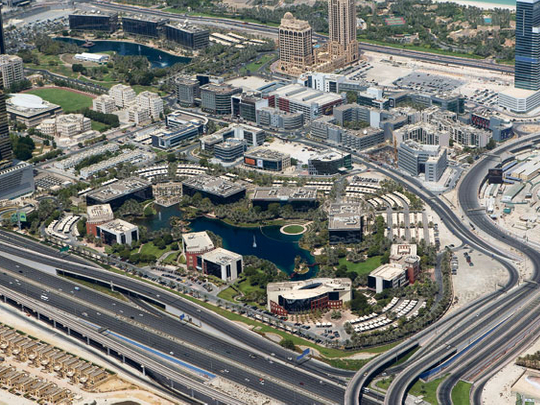
Dubai: Listed companies in the UAE may soon be allowed to raise foreign ownership limits beyond 49 per cent as the country's flagging equities scene received a timely boost ahead of next week's MSCI classification review.
The draft Companies Law allows the UAE Cabinet to issue a resolution specifying the types of businesses and sectors in which a foreign partner may hold more than 49 per cent of a company's capital, the UAE Ministry of Economy said in a statement.
Foreign ownership is one of the key obstacles facing the UAE as it seeks an upgrade to emerging market status. Morgan Stanley Capital International (MSCI) will reveal on December 14 whether the UAE has been successful in its bid, which would likely give local bourses a much needed injection of liquidity. However, analysts have warned that the new law might not have much of an immediate impact.
"Allowing majority foreign-owned companies opens the door to foreign competition, enhancing the domestic business environment and improving the competitiveness of the economy," said Farouq Soussa, Middle East chief economist at Citigroup.
"That said, one should not expect a rush of foreign investment on the back of this news. Foreign investment in the UAE exchanges are currently at a low level.
"It has been very rare in recent months to spot an instance in which actual foreign ownership is anywhere near the permitted limits. Put another way, limits on foreign ownership have not been a binding constraint for foreign equity flows into the UAE."
Currently, there is a maximum of 49 per cent ownership limit for listed companies, and foreigners need a UAE national or partner to conduct business, although full foreign ownership is permitted in free zones.
Extra time
MSCI extended its classification review period in June for a further six months to allow market participants extra time to "assess the impact of recent positive changes" implemented in both the UAE and Qatar.
MSCI said investors welcomed the implementation of new delivery versus payment (DvP) settlement models in the UAE and Qatar. However, it also stated that few market participants had made a full assessment of the new systems as they were only introduced the previous month.
The issue of foreign ownership limits also remains a contentious issue, especially in Qatar, which has also applied for an upgrade but only permits foreign ownership limits of 25 per cent.
"The government has to consider all possible implications of such a change as it impacts many stakeholders and has the potential to drastically alter the current ownership structure of many large, UAE based corporations," said Akbar Naqvi, executive director at Al Masah Capital.
"In general, this is encouraging because eventually we should reach a stage where certain industries will see ownership beyond 49 per cent while others, considered critical to the UAE economic landscape, may not," he added.
Naqvi says the timing of the new companies law is not directly linked to the upcoming MSCI announcement, adding that they are two different issues.
"The UAE company law has wider scope and greater implications than just its impact on the local stock exchanges," he said.
"[The new law will benefit] dynamic, fast growing sectors that require new technologies, nimble decision making and lean management structures. If implemented correctly, it will certainly increase liquidity in local markets as it becomes another viable exit strategy for investors and business owners alike," he added. The MSCI global equity indices serve as the basis for over 400 exchange-traded funds throughout the world. The UAE is currently categorised as a ‘frontier market' but an upgrade would likely boost liquidity in the market.












